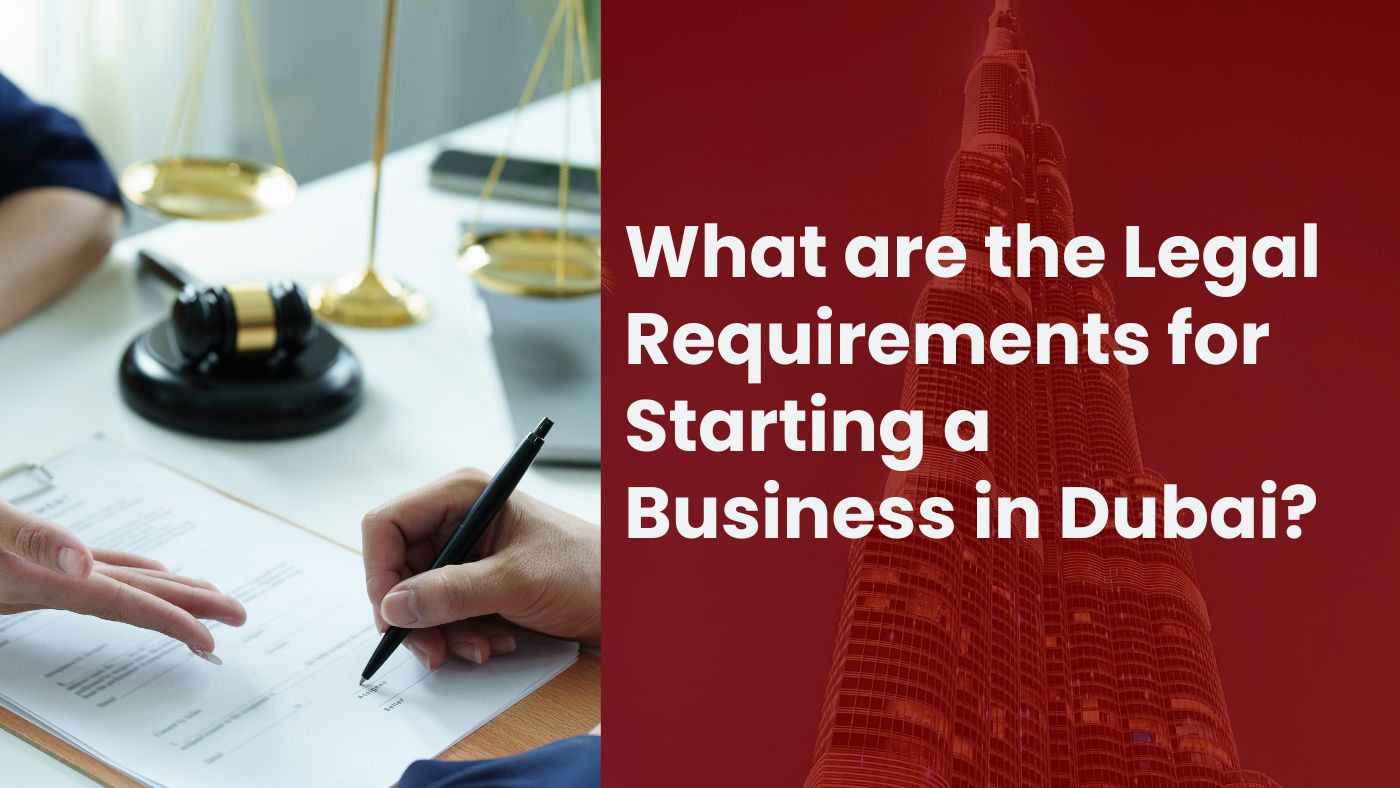In the first quarter of 2024, over 19,000 new companies joined the Dubai Chamber of Commerce, marking a year-on-year increase of 17.6%. This growth highlights Dubai’s status as a global business hub, offering a prime location, favourable policies, and excellent infrastructure. Businesses benefit from tax advantages, a diverse talent pool, and proximity to international markets. If you are planning to take advantage of these benefits understanding the legal requirements for starting a business in Dubai is important. This blog will outline these key legal requirements for your business establishment.
Key Legal Requirements to Start a Business in Dubai
1. Business Structure Options
When setting up a business in Dubai, you can choose from the following three structures:
- Mainland: For mainland company formation in Dubai, foreign investors can now own 100% of their company in many sectors, thanks to recent legal changes. However, certain strategic industries still require local ownership. An important advantage for mainland companies is that they can operate throughout the UAE and are not restricted by location.
- Freezone: A Dubai Freezone license offers full foreign ownership, making it an attractive option for international companies. There are over 30 freezones in Dubai, each catering to different industries. However, freezone companies can only operate within the freezone or internationally.
- Offshore: Offshore company formation in Dubai is ideal for international business operations. These companies cannot conduct business within the UAE but can hold assets and enjoy tax efficiency. Offshore company formation is popular for businesses looking for privacy and flexibility in managing global operations.
2. Business License
Every business in Dubai must acquire a license based on the type of activity it conducts. In 2023 alone, over 72,125 new business licenses were issued, reflecting the city’s dynamic growth. The main types of licenses available are:
- Commercial license
- Professional license
- Industrial license
- Tourism License
- E-commerce License
3. Trade Name Registration
To start your business in Dubai you need to register a trade name with the Dubai Department of Economic Development (DED). Ensure that the name that you choose complies with the DED’s guidelines.
4. Drafting Necessary Documentation
A key component of business setup in Dubai involves preparing essential documents. These typically include:
- Memorandum of Association (MoA): Outlines the company’s structure and operations.
- Initial Approval Certificate: Obtained from the DED or relevant free zone authority.
- Tenancy Contract: Proof of physical office space is mandatory for most types of businesses.
- Passport Copies: Required for all shareholders and managers.
These documents must be notarized and submitted along with application forms to initiate the registration process.
5. Tax Registration
Once you start your operations, you need to register your business for VAT if applicable. As of 2024, businesses must register for VAT if their taxable supplies and imports exceed AED 375,000 in the previous 12 months. If your business’s taxable income falls below this mandatory threshold but is above AED 187,500, you may opt for voluntary registration.
6. Office Space
Office space requirements differ depending on where you’ve set up your business:
- Mainland companies require a physical location approved by the government.
- Free zones offer more flexibility, including virtual offices and coworking spaces often with cost-effective leasing options.
- Offshore companies in Dubai are not required to have a physical office within the UAE.
7. Visas
To operate legally, you must also facilitate visa applications for yourself and your employees through the General Directorate of Residency and Foreigners Affairs (GDRFA). The number of visas granted depends on the size and nature of the business.
Additional Considerations
- Taxation: While Dubai offers a 0% corporate tax rate on most sectors, businesses operating in specific sectors, such as oil or banking, may be subject to taxation.
- Bank Account: You will also need to open a corporate bank account, which requires a company’s legal documents, proof of business setup, and, in some cases, a deposit amount.
- Compliance with Economic Substance Regulations (ESR): Dubai businesses must comply with ESR requirements, which ensure companies are carrying out substantial activities within the UAE.
Why Cleritbiz is Your Trusted Partner for Business Setup?
Understanding the legal requirements for starting a business in Dubai can be challenging, but with the right partner, it becomes easier. Cleritbiz has over 10 years of experience in helping businesses set up in Dubai. With a proven track record of assisting over 2,000 businesses, Cleritbiz simplifies the process with tailored solutions and expert guidance, ensuring your venture is fully compliant and ready for success.

